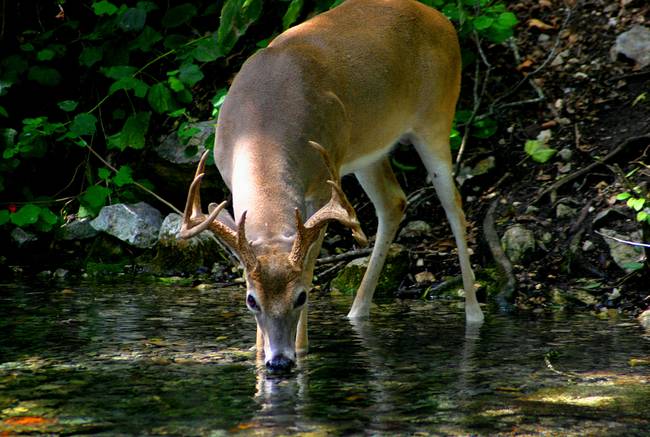
If you’re a deer hunter, deer manager, or just enjoy feeding and watching whitetail deer, chronic wasting disease is bad news. First found in a captive mule deer in Colorado in 1967, today CWD has been identified in captive and/or wild deer, elk and/or moose in 24 states and three Canadian provinces. In short, CWD has been around a long time, and that’s not about to change anytime soon.
One prominent topic at Michigan’s CWD Symposium was the myriad ways, or transmission avenues, that cervids can contract CWD. In my last post, I noted that the infectious material most scientists believe causes CWD, prions, have been found in the blood, feces, saliva and urine of infected animals. Prions are pernicious infectious agents that can also exist for years in soil, binding to clay particles and creating potential “CWD hot spots” that deer may encounter.
Perhaps most disturbing, recent research has shown that plants consumed by deer and other cervids can uptake and hold prions, meaning that food sources could be tainted wherever CWD-positive animals have been found. Lab tests have proven that prion uptake by plants can occur after coming into prions, and sick deer are known to shed prions for long periods of time before succumbing to CWD.
“Among whitetails, we have documented that shedding infectious prions occurs as early as three months after becoming infected with CWD, and six months in their feces,” explained Dr. Dave Samuel, a researcher at the University of Wisconsin.
So tainted food sources pose a threat to healthy whitetails. So too do potentially tainted water source. Yep – you guessed it – infectious prions can also be found in water. Coincidentally, the midges known to cause hemorrhagic diseases like epizootic hemorrhagic disease are also found at water sources and wherever deer congregate, meaning it’s possible for deer to experience a “double-whammy” of EHD and CWD at one watering hole.

